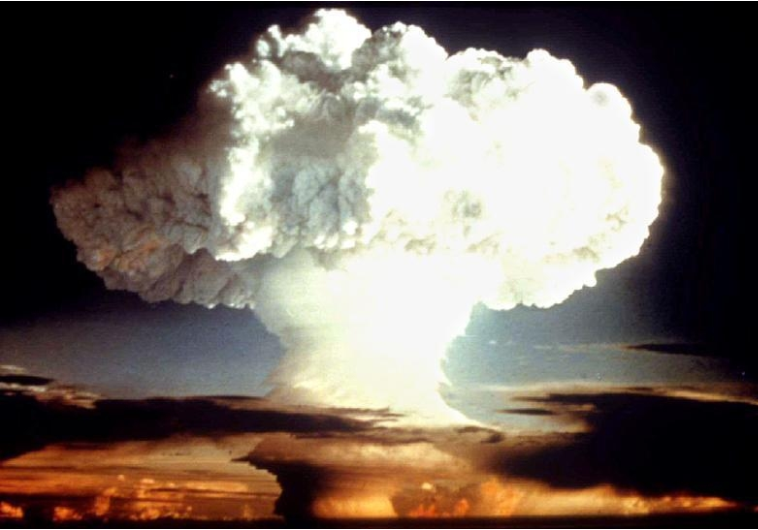In Iran we trust? Illegal purchases of nuclear weapons technology continued to June ‘15
By BENJAMIN WEINTHAL, EMANUELE OTTOLENGHI /J.Post?07/12/2015 00:33
LONDON/BERLIN – Can Iran be trusted to uphold the nuclear deal being finalized in Vienna? Can the Obama administration and its partners in the P5+1 be trusted to hold Iran’s feet to the fire in case of violations? We know the answer to the first question – Iran cannot be trusted. It is Iran’s history of nuclear subterfuge that got us here in the first place. That is why the deal, even in the negotiations’ final stretch, remains so elusive. After all, the remaining gaps all relate to verification of Iran’s past activities and future compliance.
The answer to the second question is trickier, because unless Iran’s violations are egregious, there will be a temptation to ignore or downplay them. The evidence of this has been apparent for some time now. Iran got away with selling more oil than it should have under the interim agreement. More ominously, Tehran repeatedly pushed the envelope on technical aspects of the agreement – such as caps on its uranium stockpile – and got away with it as an Obama administration loath to see its diplomatic efforts stymied denied such violations ever occurred.
More evidence has now come to the surface, thanks to two reports recently published on Iran’s attempts to illicitly and clandestinely procure technology for its nuclear and ballistic missile programs. What emerges from these reports is troubling – Iran’s procurement continues apace, if not faster than before the interim agreement was signed in Geneva in November 2013. But fear of embarrassing negotiators and derailing negotiations has blunted the willingness of countries to publicly denounce these efforts.
And if countries hesitated to expose and denounce such efforts during the negotiations, it is even more likely they will refrain from making a public stink once the deal is done, so as not to spoil diplomacy’s success too soon. The first report was released last month by the UN panel of experts in charge of reporting compliance with Security Council resolutions against Iran. The panel noted that UN member states had not reported significant violations of UN sanctions and speculated on the reasons, suggesting two alternative explanations: Either Iran was complying or countries did not wish to interfere with negotiations.
The second report, released last week by Germany’s domestic intelligence agency, is less ambiguous. The Bundesamt für Verfassungsschutz (BfV) (Federal Office for the Protection of the Constitution) agency confirmed in its report that Iran continues to seek illicit technology for its nuclear and missiles program. According to information provided to us from the agency, Iran’s illegal proliferation activities have continued since the Joint Plan of Action agreement was agreed upon in 2013 through the present day.
Iran has had a long history of trying to obtain nuclear technology from German companies, particularly by seeking ways to transport merchandise in circumvention of international sanctions. One would think that if Iran were genuinely seeking a new path, as the Obama administration believes, its efforts would be concentrated on mending its old ways and reassuring the international community, in the midst of critical negotiations about its nuclear program, that it no longer seeks to illicitly procure dual-use nuclear technology.Yet, as German intelligence sources told us, “Despite the talks to end Iran’s program, Iran did not make an about-turn.” It is not just that the procurement efforts are as frequent as before negotiations.
They are qualitatively significant: Since November 2013, Tehran has sought industrial computers, high-speed cameras, cable fiber and pumps for its nuclear and missile program while negotiating in Vienna, Geneva and Lausanne. While our German sources diplomatically added that one can only “speculate” on the reason Iran’s regime continues to evade nuclear sanctions, their findings only confirm what critics of the deal have been saying all along. Iran’s readiness to negotiate does not reflect any substantive policy change – it is a tactical retreat forced by economic distress, not a strategic rethinking of its priorities.
It is unclear whether the German government shared the information on Iran’s ongoing violations with the UN sanctions committee responsible for enforcing resolutions against Iran. If it did, why would the UN report omit such breathtaking evidence that Iran’s systematic cheating continued in Germany? Iran’s cheating should give Western negotiators additional resolve to ensure there are iron-clad guarantees in the agreement, or walk away. Iran must reveal its past activities, including its recent, post-November 2013, procurement and must accept tough, intrusive, “anytime, anywhere” inspections before sanctions are suspended, let alone lifted.
Instead, the lack of reporting to the UN despite evidence of cheating suggests timidity on the part of Western nations invested in the agreement, and a willingness to downplay all but the most egregious violations. This does not bode well. If Iran’s continued efforts to evade sanctions have not been met with due penalties for fear of spoiling the negotiations, how will future violations be treated? The answer is that Tehran’s cheating will continue, while those who were afraid to rock the boat for the sake of a deal will now seek to downplay any Iranian violation that might disprove their zeal for a deal. A shorter version of this article first appeared in The Weekly Standard. Emanuele Ottolenghi is a senior fellow for the Foundation for Defense of Democracies. Benjamin Weinthal reports on European affairs for The Jerusalem Post and is a research fellow for the Foundation for Defense of Democracies.






















